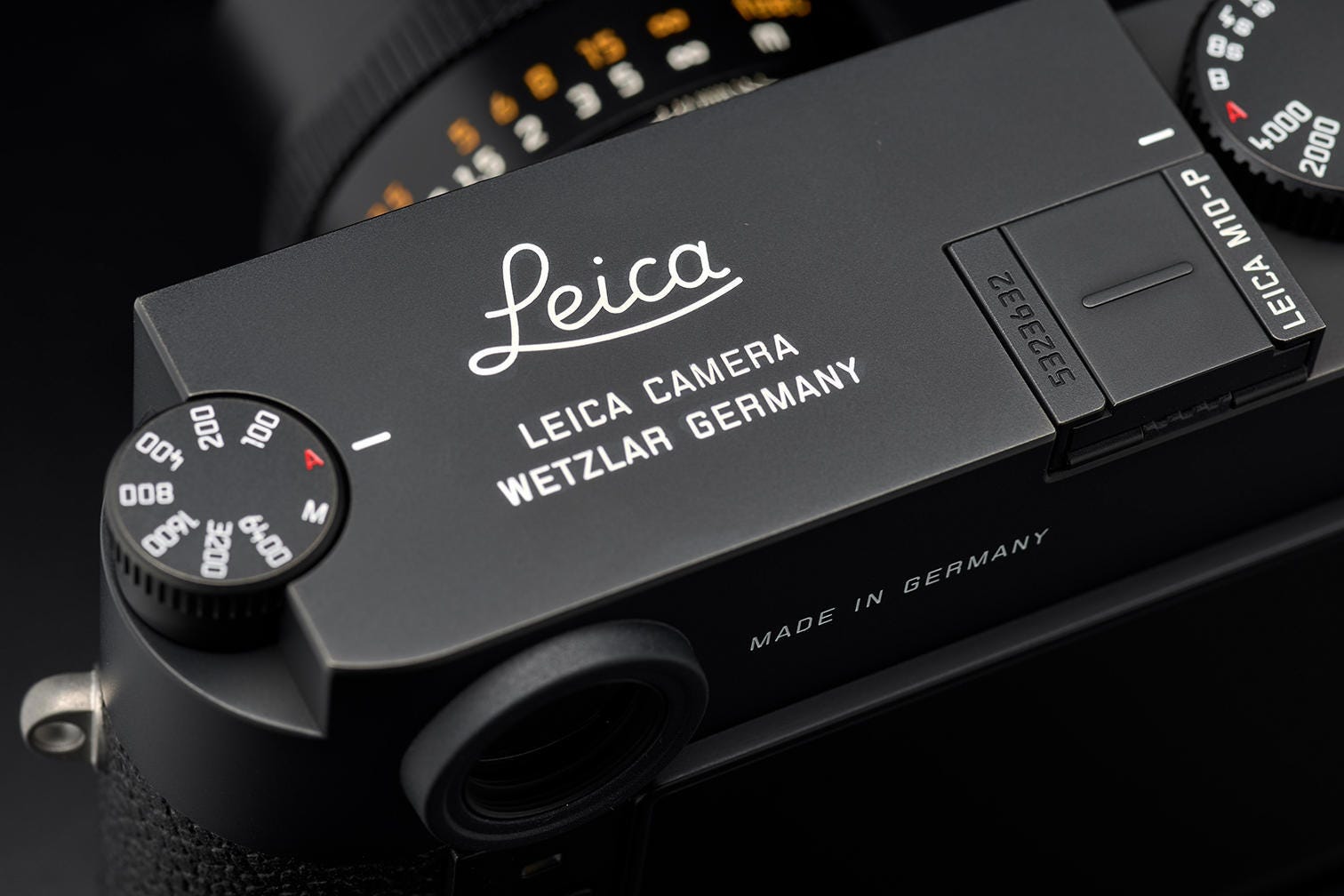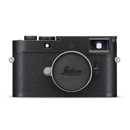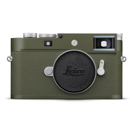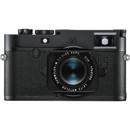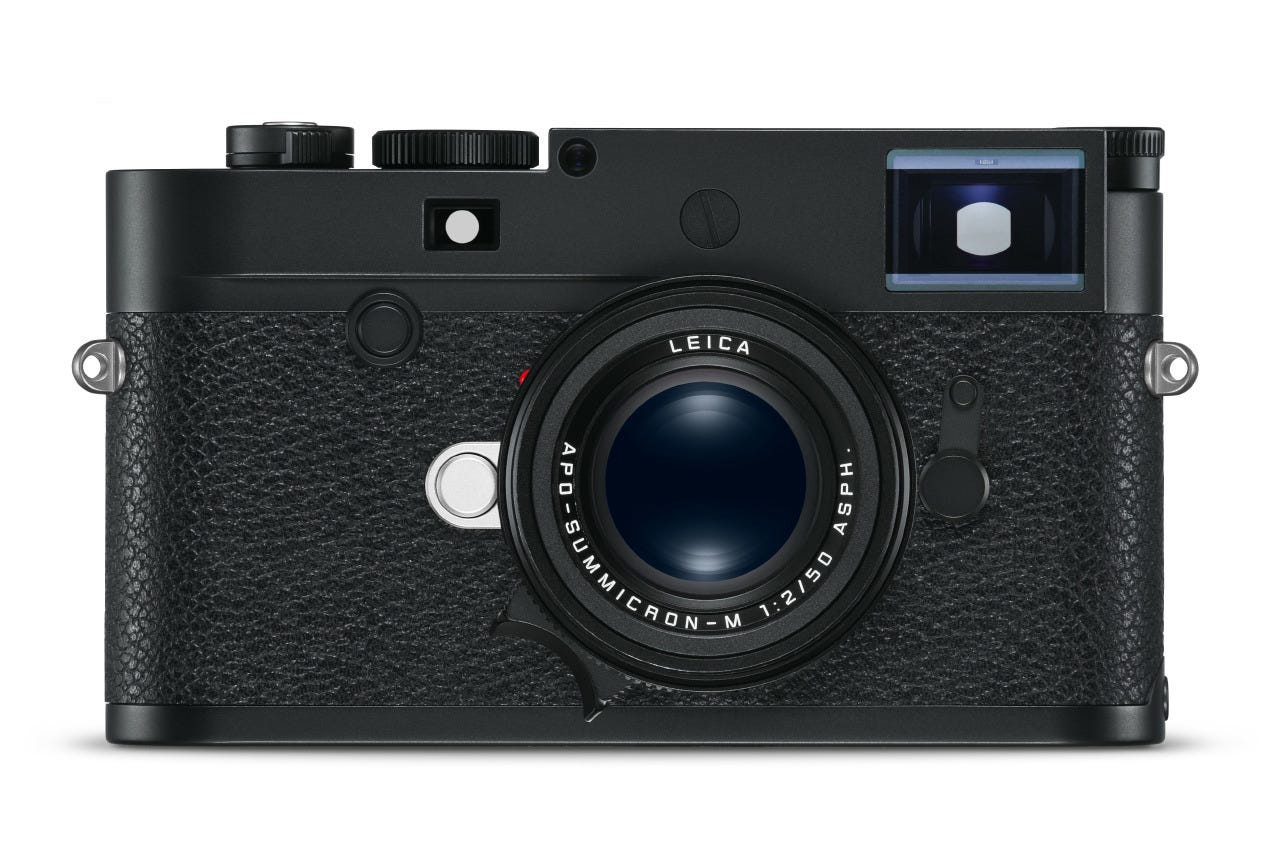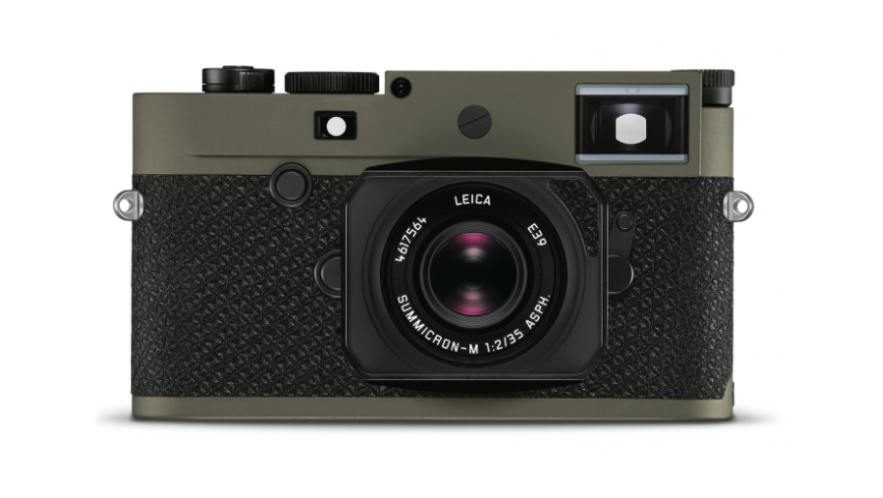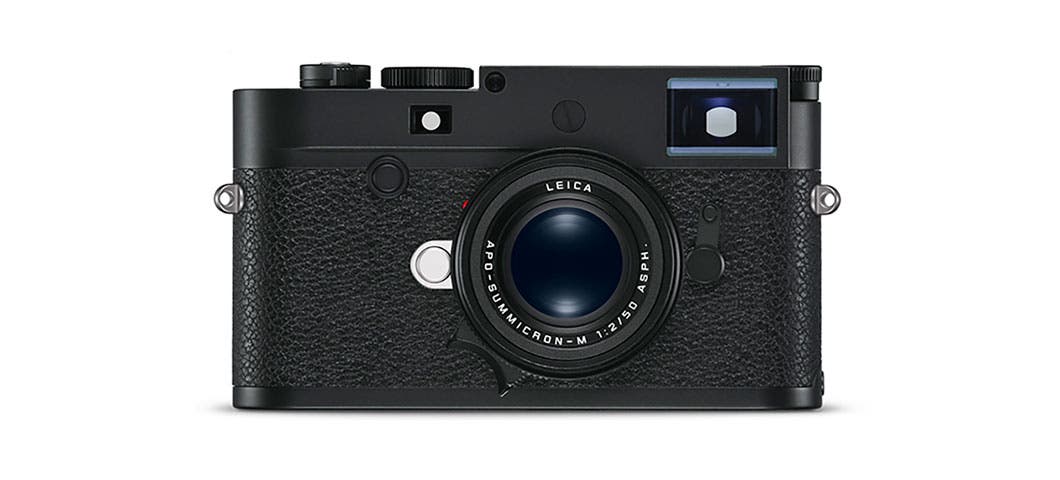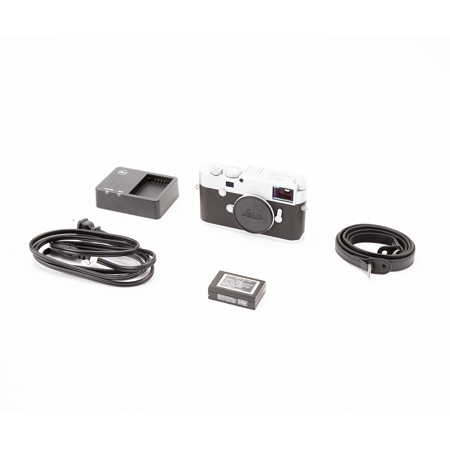
Used Leica M10-P Mirrorless Digital Rangefinder Camera, Silver
This item is no longer available.
Recommended Items
Reviews about this item
Review Summary
2018-09-21T10:10:39
MP 10 vs 240
First and foremost this is a Leica. Therefore, I’m not going to contrast MP 10 to other camera brands. You either want the Leica experience or you do not. Having said that, I will contrast that to my previous Leica 240. As an aside, I used film Leicastoremiami prior to the 240. The MP 10 is more and less in all the best ways. The 240 was a great camera, but it was larger than previous Leicas. The 240 provided full HD movie recordings and 3 FPS shooting. The 240 has a complex 6 button and cursor navigation menu on the back that is not entirely intuitive or fast. Now the MP 10. The body is back in shape, very close to the old film cameras. The HD movie feature has been eliminated. Not a problem as I never used it. The navigation was greatly improved. We now have 3 buttons and a touch screen making adjustments easy and intuitive (pinch and squeeze or expand to zoom in and out). ISO now has a dedicated knob on the body (ala film Leica). Continuous shooting is now up to 5 FPS and ISO sensitivity is improved to 50000. Another improvement is the nearly silent shutter (the 240 wasn’t loud but it was noticeable over the earlier film camera). For me these advances were worth the upgrade. If I had the M10, probably not, unless you have some disposable income.
chris i.
Leica M10-P Specifications
Camera Type
Leica M10, compact digital view and range finder system camera
Lens Attachment
Leica M bayonet with additional sensor for 6-bit coding
Lens System
Leica M lenses, Leica R lenses can be used with an adapter (available as an accessory)
Shot Format/Picture Sensor
CMOS chip, active surface approx. 24 x 36mm
Resolution
DNG: 5976 x 3992 pixels (24MP), JPEG: 5952 x 3968 pixels (24MP)
Date Format
DNG (raw data, compressed loss-free), JPEG
File Size
DNG: 20-30 MB, JPEG: Depending on resolution and picture content
Buffer Memory
2GB / 16 pictures in series
White Balance
Automatic, manual, 8 presets, color temperature input
Storage Medium
SD cards up to 2GB/SDHC cards up to 32GB/SDXC cards up to 2TB
Menu Language
German, English, French, Spanish, Italian, Portuguese, Japanese, Traditional Chinese, Simplified Chinese, Russian, Korean
Exposure Metering
Exposure metering through the lens (TTL), with working aperture;
Metering Principle/Method
For metering the light reflected by light blades of the 1st shutter curtain onto a measuring cell: Strong center-weighted; for metering on the sensor: Spot, center-weighted, multi-field metering
Metering Range
At room temperature and normal humidity for ISO 100, at aperture 1.0 EV-1 to EV20 at aperture 32. Flashing of the left triangular LED in the viewfinder indicates values below the metering range
Sensitivity Range
ISO 100 to ISO 50000, adjustable in 1/3 ISO increments from ISO 200, choice of automatic control or manual setting
Exposure Modes
Choice of automatic shutter speed control with manual aperture preselection - aperture priority A, or manual shutter speed and aperture setting
Flash Unit Attachment
Via accessory shoe with central and control contacts
Synchronization
Optionally triggered at the 1st or 2nd Shutter curtain
Flash Sync Time
= 1/180s; slower shutter speeds can be used, if working below sync speed: Automatic changeover to TTL linear flash mode with HSS compatible Leica system flash units
Flash Exposure Metering
Using center-weighted TTL pre-flash metering with Leica flash units (SF40, SF64, SF26), or flash units compatible with the system with SCA3502 M5 adapter
Flash Measurement Cell
2 silicon photo diodes with collection lens on the camera base
Flash Exposure Compensation
+/-3EV in 1/3EV increments
Displays in Flash Mode (Viewfinder)
Using flash symbol LED
Viewfinder
Large, bright line frame viewfinder with automatic parallax compensation
Screen Size
3"
Eyepiece
Calibrated to -0.5 dpt.; corrective lenses from -3 to +3 diopter available
Image Field Limiter
By activating two bright lines each: For 35 and 135mm, or for 28 and 90mm, or for 50 and 75mm; automatic switching when lens is attached.
Parallax Compensation
The horizontal and vertical difference between the viewfinder and the lens is automatically compensated according to the relevant distance setting, i.e. the viewfinder bright-line automatically aligns with the subject detail recorded by the lens.
Matching Viewfinder & Actual Image
At a range setting of 2m, the bright-line frame size corresponds exactly to the sensor size of approx. 23.9 x 35.8mm; at infinity setting, depending on the focal length, approx. 7.3% (28mm) to 18% (135mm) more is recorded by the sensor than indicated by the corresponding bright line frame and slightly less for shorter distance settings than 2m
Magnification (For all lenses)
0.73x
Large-base Range Finder
Split or superimposed image range finder shown as a bright field in the center of the viewfinder image
Effective Metering Basis
50.6mm (mechanical measurement basis 69.31mm x viewfinder magnification 0.73x)
About Leica M10-P Mirrorless Digital Rangefinder Camera, Silver
MP 10 vs 240
By chris i.
First and foremost this is a Leica. Therefore, I’m not going to contrast MP 10 to other camera brands. You either want the Leica experience or you do not. Having said that, I will contrast that to my previous Leica 240. As an aside, I used film Leicastoremiami prior to the 240. The MP 10 is more and less in all the best ways. The 240 was a great camera, but it was larger than previous Leicas. The 240 provided full HD movie recordings and 3 FPS shooting. The 240 has a complex 6 button and cu...
View full Review
Leica M10-P Mirrorless Digital Rangefinder Camera
The M10-P is Leica’s newest addition to their line of sleek and sophisticated digital M-series rangefinders. Designed to be one of their best yet, the classy and minimalist M10-P features the quietest shutter ever to be integrated into any film or digital M-series camera. It is also equipped with an enhanced 24MP Full-Frame CMOS sensor and Leica’s Maestro II Image Processor to deliver high-resolution 24MP photos at up to 5 frames per second, as well as an extended dynamic range and high ISO sensitivity of up to 50,000. Loyalists will love the familiar slim body that is reminiscent of its twin model, the M10. An enlarged optical viewfinder with 0.73x magnification and a 3-inch rear touchscreen LCD monitor (which features scratch-proof Gorilla Glass) provides accurate focusing and creative compositional freedom, while a dedicated control dial allows for quick ISO adjustments during demanding shooting scenarios. A built-in Wii-Fi module enables wireless sharing and connection to a mobile device for remote control of camera functions. The Leica M10-P has two color variants: chrome black and silver. It also noticeably lacks the iconic red Leica badge in front, making it an attractive choice for those who want a professional-quality camera without standing out from the crowd.
ALC: Leica M10-P Camera Announced: A ‘Classically Minimalist’ Design With a Silent Shutter Release
t’s finally here. Today, Leica is expanding its M series with the release of the Leica M10-P. The M series has been touted by street photographers — along with everyone else — for its ability to quietly and professionally capture any moment without notice. The new rangefinder continues the series’ key attributes of being slim, tactful, silent, and easily discreet.
READ MORE
LEICA M10-P: A New Level
The Leica M10-P takes the traditional understatement of the M series to a new level. Connoisseurs will appreciate the fine distinctions between the M10-P and the M10. These include the quietest shutter of any M camera ever – a seemingly minor detail that can nevertheless make the difference between a good picture, and a great one.

Go unnoticed in the street
The prominent red dot on the front of the camera, masked with tape by many pro photographers for added stealth, has been omitted. Instead the camera features unobtrusive Leica lettering on the top plate. In terms of construction and materials, the M10-P naturally meets the same superior standards as its sister models – making it an ideal choice for photographers with an eye for the extraordinary.

The quietest shutter of any M Camera ever
Even quieter than an analog M
All Leica M cameras are known for many distinctive qualities, one of the most notable is their unobtrusiveness. This attribute is characterized not only by iconic industrial design, but also by their barely audible shutter sound – offering a vital advantage in shooting situations that require the utmost quiet.

New levels of control
The first M with touch functionality
Every aspect of a Leica M is dedicated to concentrating on what is essential: taking pictures. Consequently, the M10-P offers state-of-the-art technology solely to augment this philosophy.
The new display with touch functionality allows for faster and more fluid control of the focus position in Live View and Playback modes, along with more convenient browsing of photos during Playback.
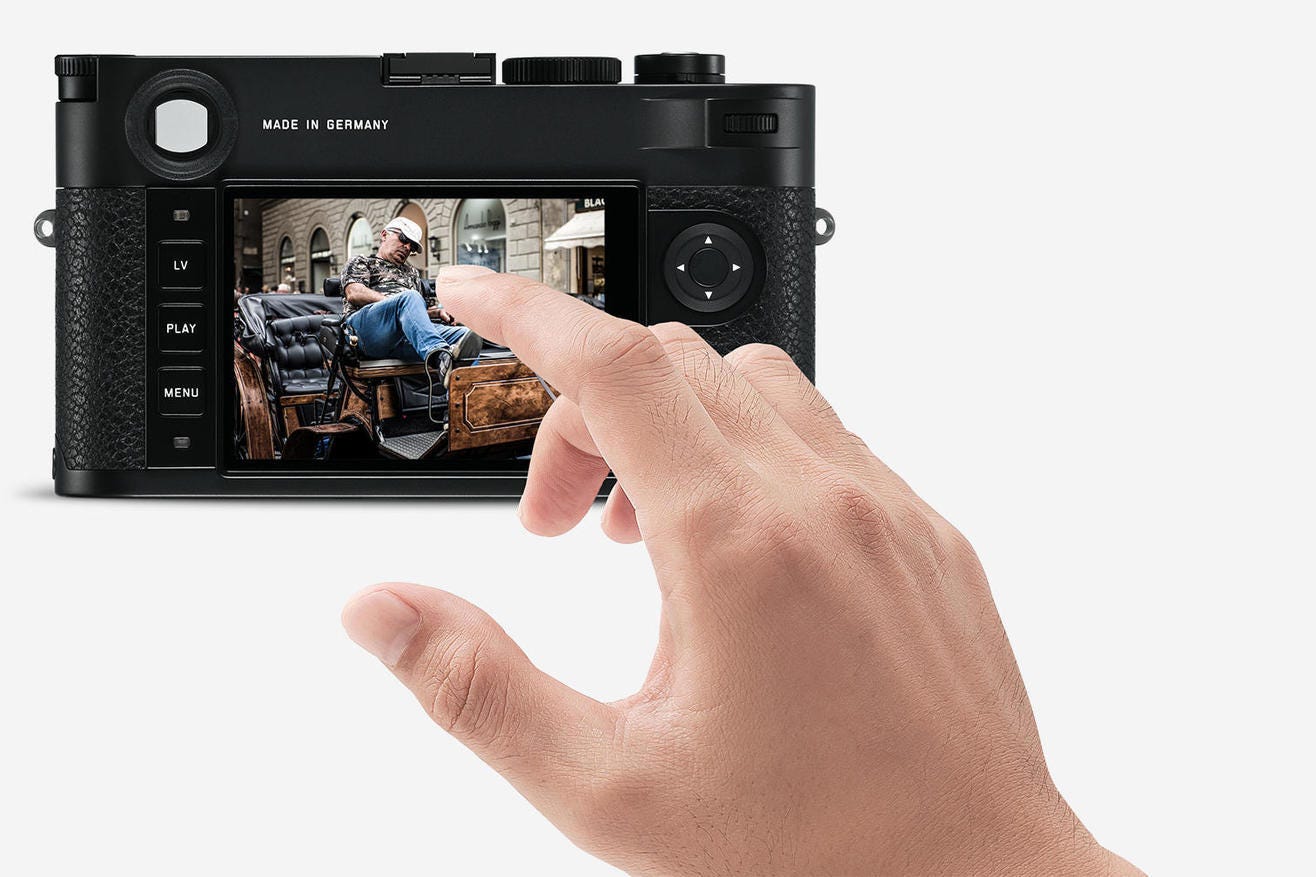
100% Iconic
The essence of perfection
The exterior of the Leica M10-P differs from the M10 in only fine details, such as the omission of the red Leica dot, and the matching metal hot-shoe cover that seamlessly merges into the top plate.
Compact, pared down and discrete, the M10-P’s design perfectly reflects what M cameras have always stood for: an understated excellence that allows photographers to capture fleeting moments from the rich tapestry of life.
